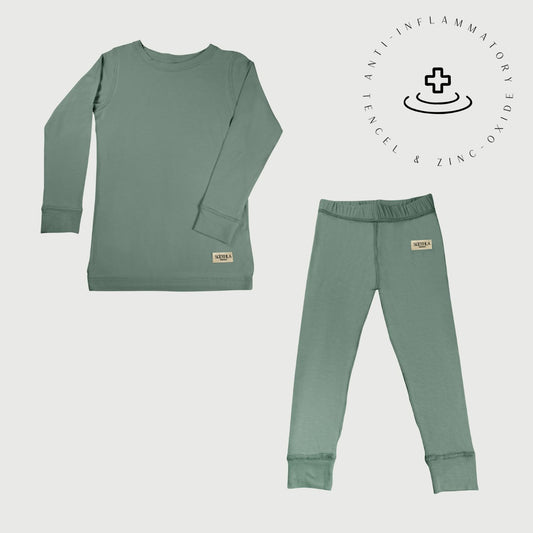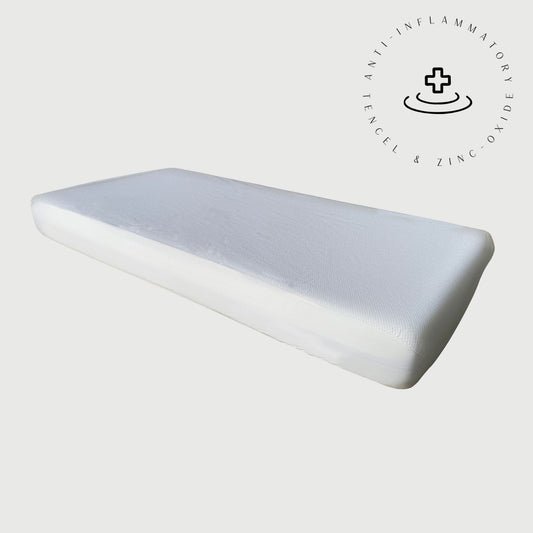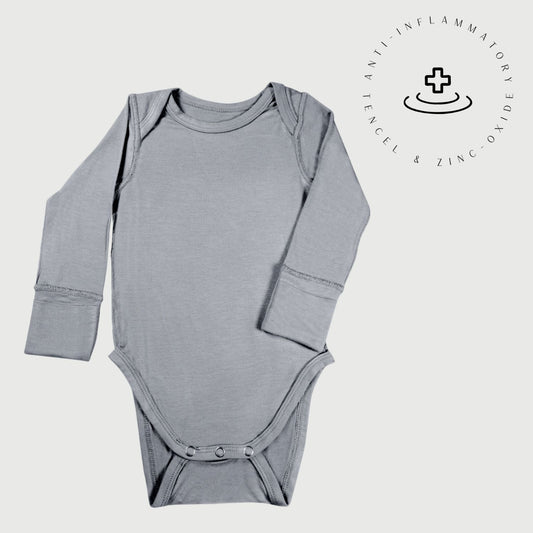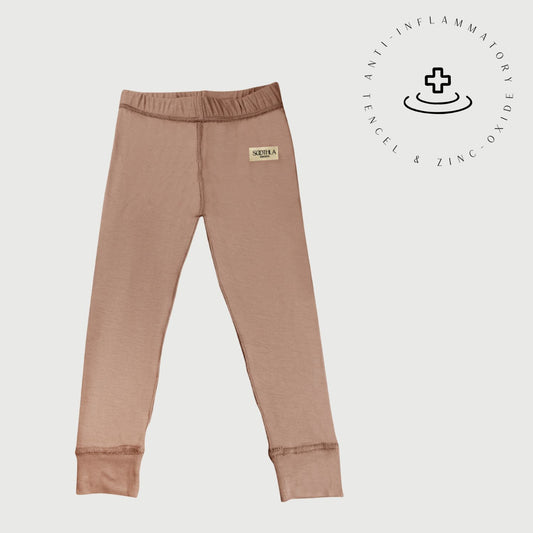This article was last updated on 10 November 2023
Summer is a common time when those struggling with eczema can experience flare-ups due to several factors.
We have compiled a list of tips based on information gathered from The National Eczema Society and The American Academy of Dermatology Association.
Keep out of direct sunlight
Avoid being out in direct sunlight, especially when the sun is at its highest (11:00 – 15:00). Spend your outside time in the shade as much as possible, and don’t forget to use sunscreen even when you are not out in direct sunlight.
Protect the skin with clothing
Clothing that protects against harmful UVA- and UVB radiation is essential during sunny days out.
Our fabric has been clinically proven to protect skin with up to 50 SPF, making our entire clothing collection the perfect option for UV-protective clothing. Unlike other sticky UV clothing, our collection is soft, airy, and breathable.
Furthermore, it is always a good idea to protect the delicate skin on top of the head with a hat or cap and to protect the eyes with polarized sunglasses.
Avoid swimming in chlorine pools
Chlorine could be described as a grey area when it comes to eczema. According to some studies, some may experience that the bleach in the chlorine can help reduce bacteria on eczema skin.
The general advice, however, is to stay away from chlorine pools and opt for swimming in the sea or in salt- or freshwater pools.
For indoor swimming, apply a thick layer of your usual cream or ointment so that it acts as a barrier between the water and the skin. For outdoor swimming, using a generous amount of waterproof sunscreen is the best option.
Use sunscreen
Be generous with sunscreen during summer. It is recommended to use at least SPF 30 but the higher SPF, the better! Look for sunscreens containing zinc oxide or titanium dioxide for the best protection. Also, make sure to first test the sunscreen on a small piece of skin to see if the sunscreen does not irritate or worsen the sensitive eczema skin.
Sunscreen can unintentionally be removed by sweating, swimming, or when drying with a towel so remember to reapply continuously during the day even if the sunscreen claims to last all day long.
Pay special attention to expiry dates. A sunscreen typically only stays effective for about 30 months.
Moisturize continuously
The warm weather can easily dry out eczematous skin even more, so moisturizing continuously during the day is very important. Your usual creams or ointments should do the job.
Moisturizing after a shower or bath while the skin is still damp can significantly help the cream or ointment absorb into the skin.
Consult a doctor or medical professional
While this information is compiled from different associations that specialize in eczema research, it is important to note that not everyone has the same experience with eczema. Always consult a doctor or medical professional to see what precautions fit you or your child the best.
We are not, and do not claim to be a substitution to medical advice.
Sources:
Eczema in warm weather
Triggers for eczema - Swimming and eczema
Triggers for eczema - Sun and eczema
Managing eczema in summertime







